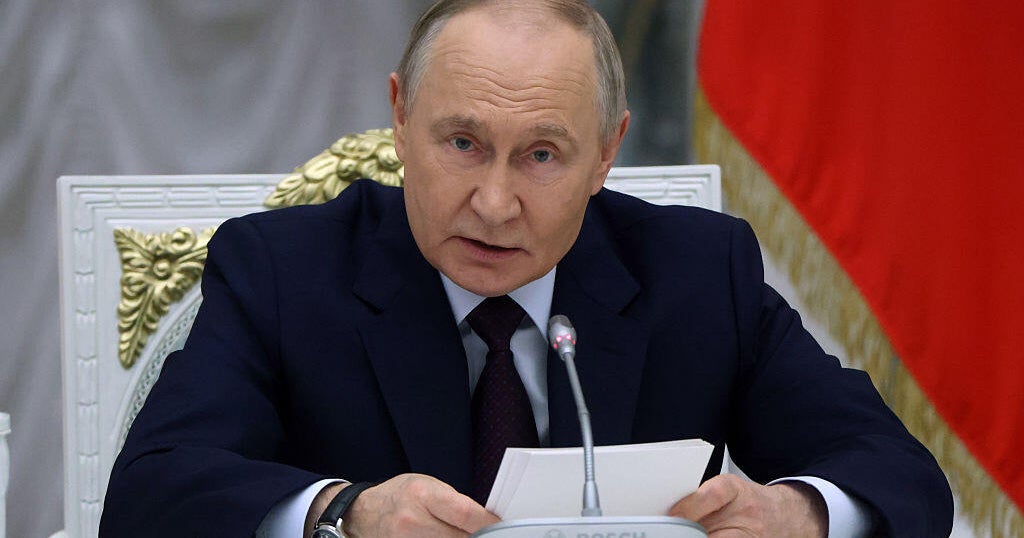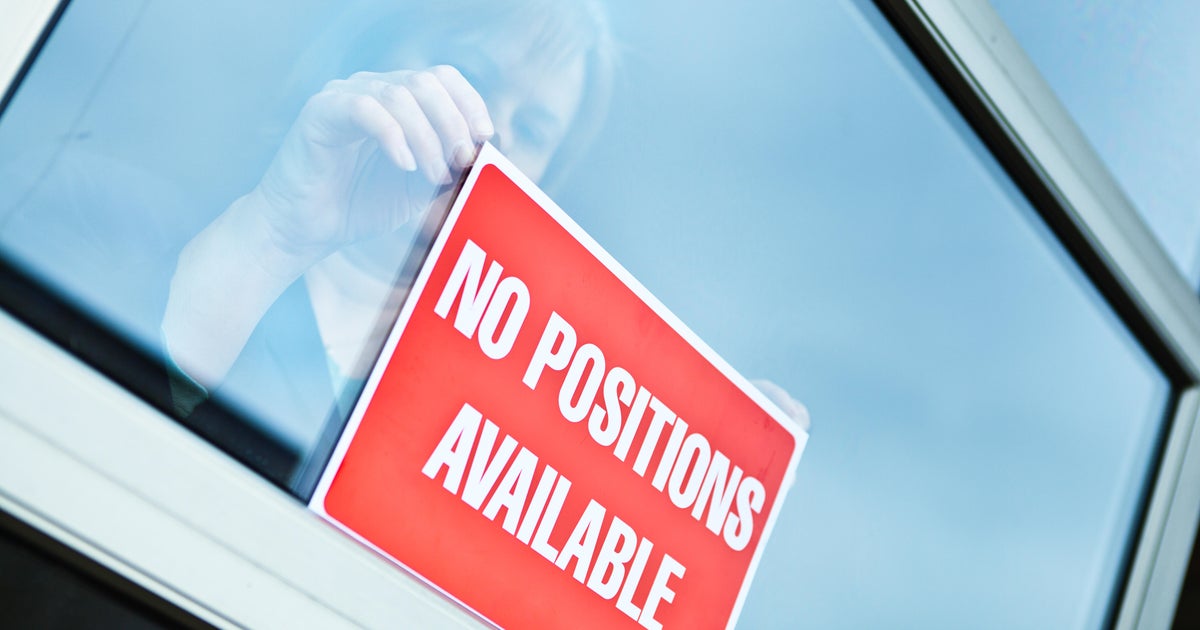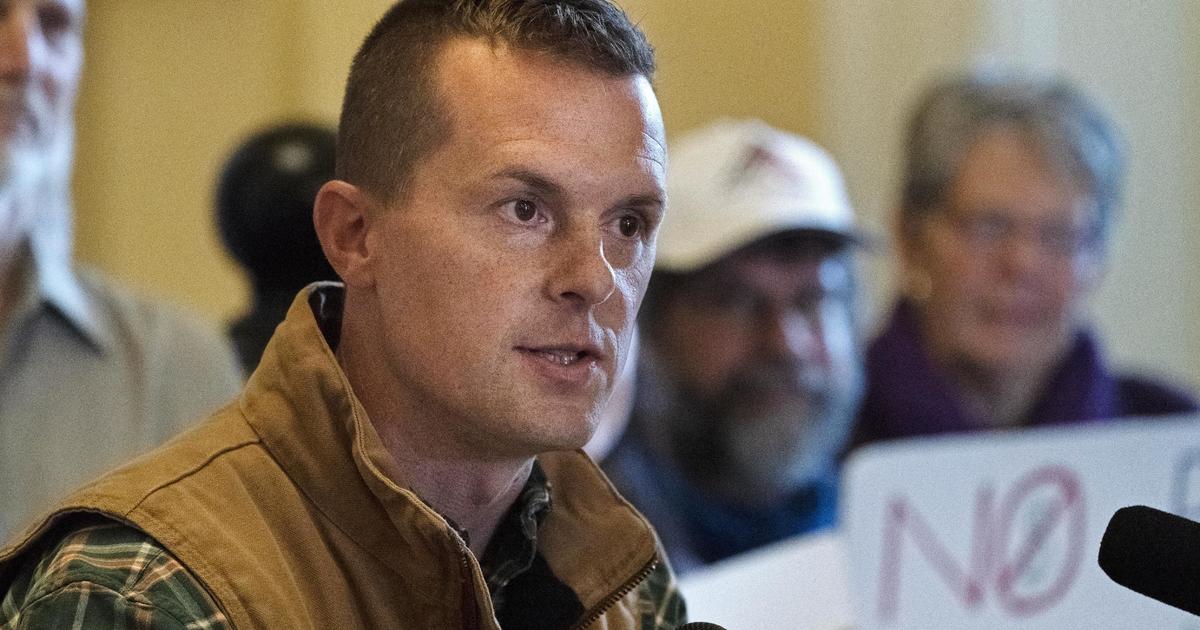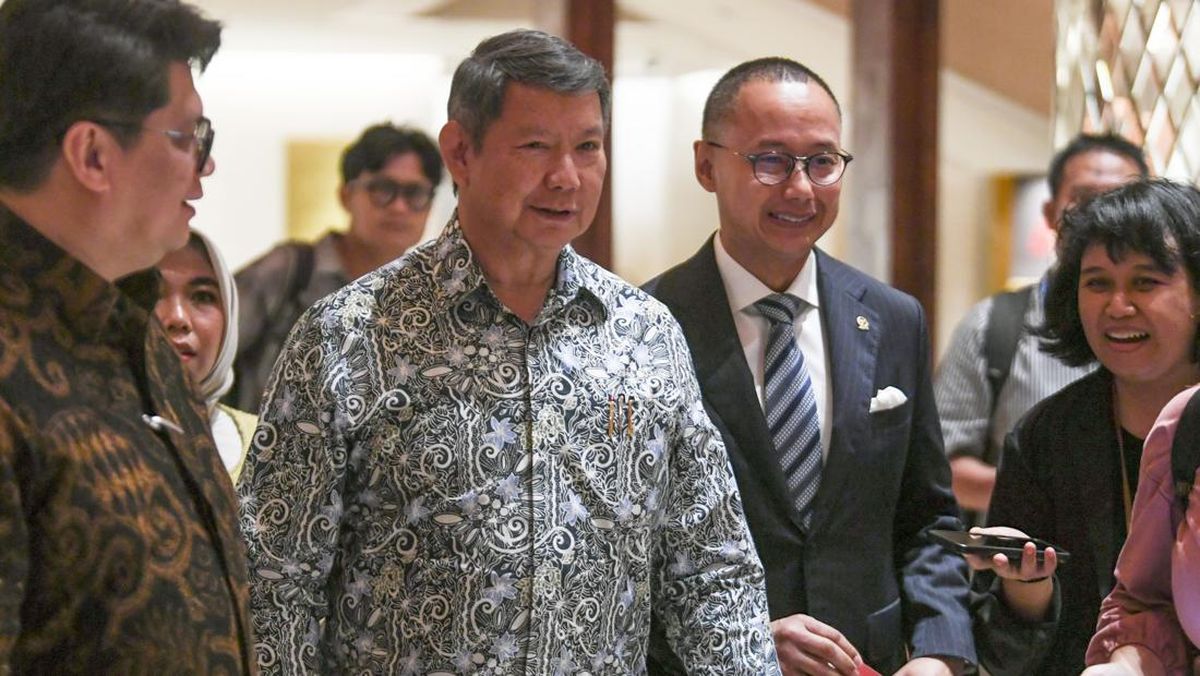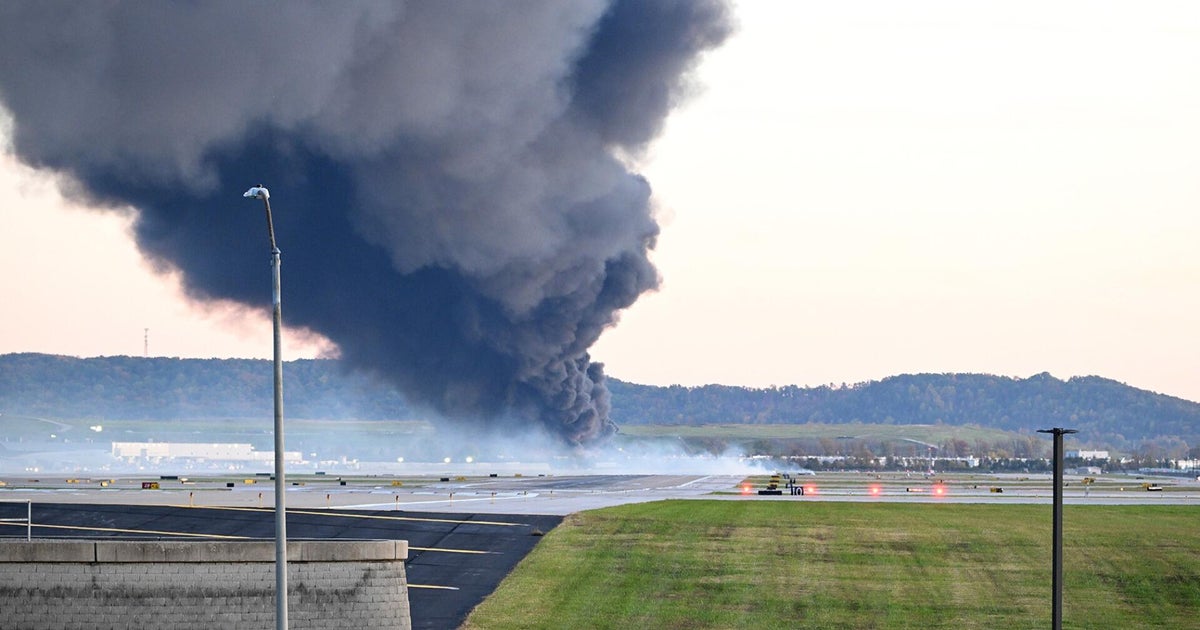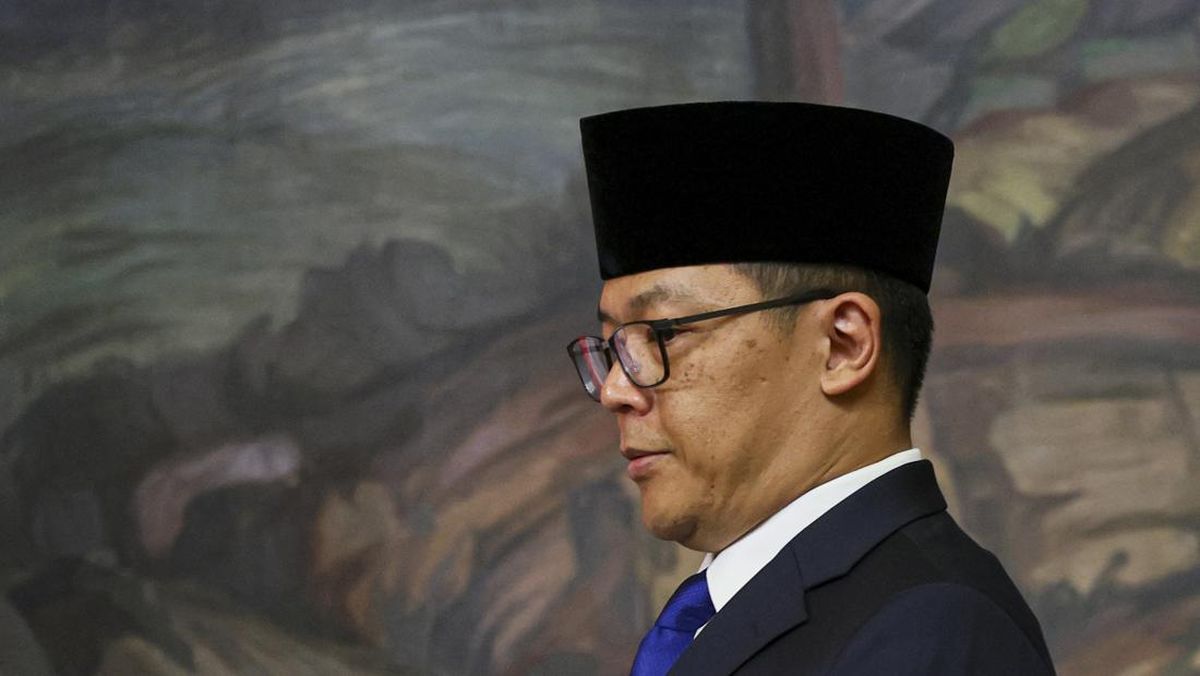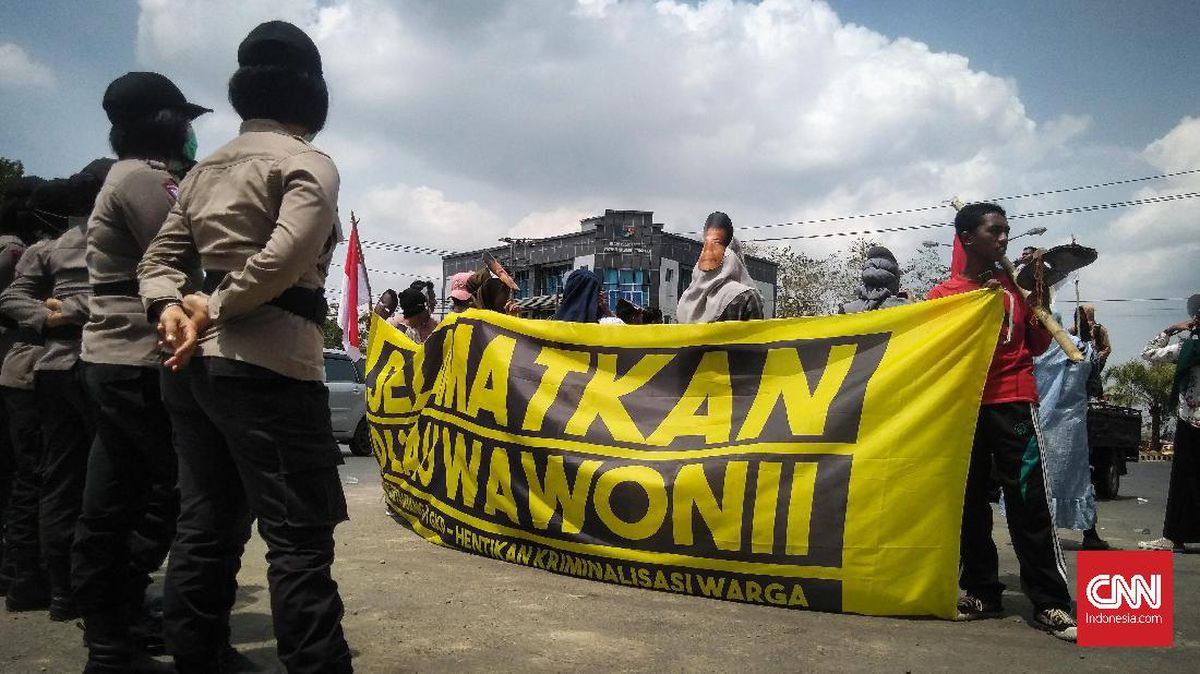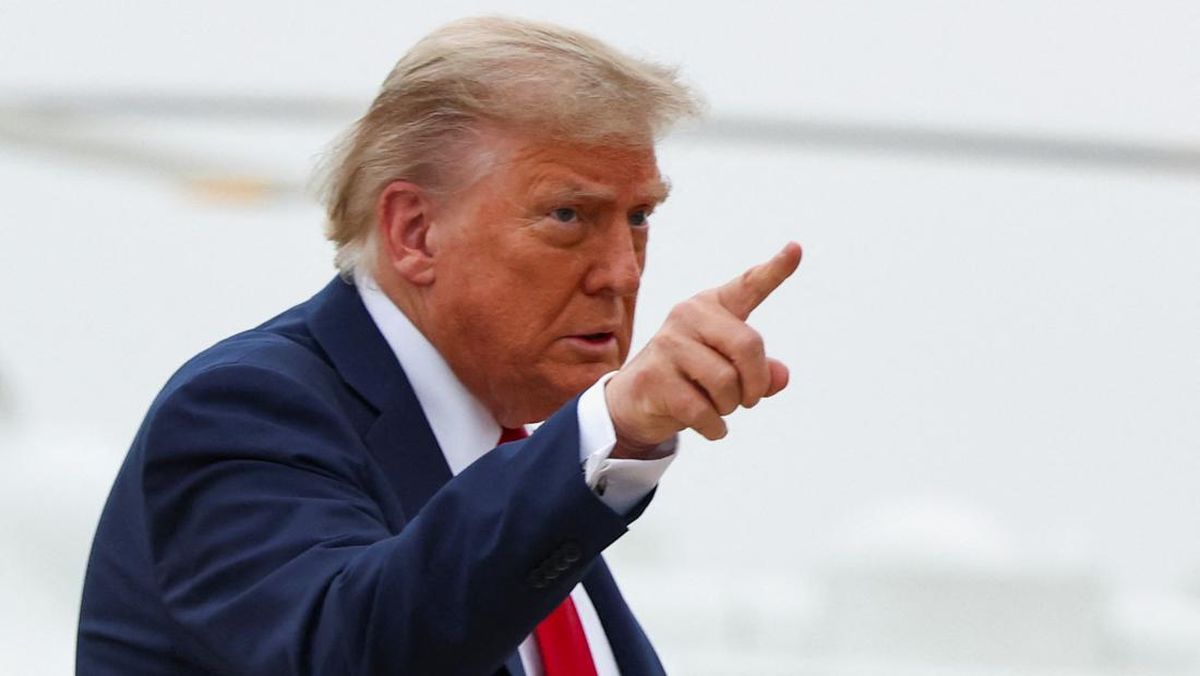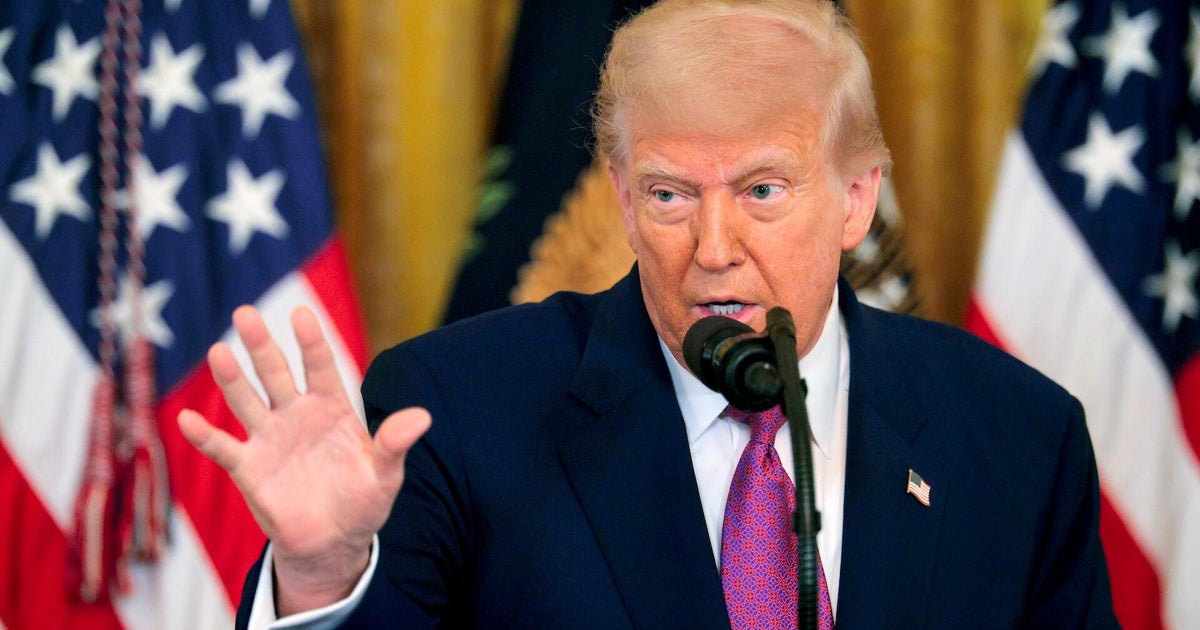Washington: President Donald Trump’s sweeping worldwide tariffs, including those on Australian products, met a sceptical reception from certain Supreme Court justices in a high-stakes case that Trump has called “life or death” for the world’s biggest economy.
The country’s highest court is being asked to determine whether Trump exceeded his authority in imposing so-called “reciprocal tariffs” on imports from most other nations, such as a 10 per cent levy on Australian goods.

A demonstrator outside the US Supreme Court on Wednesday (Thursday AEDT), where the tariff case was being heard.Credit: Bloomberg
Trump used an emergency powers law, known as IEEPA (International Emergency Economic Powers Act), to enact the tariffs in April at a ceremony he described as “Liberation Day for America”. But a number of small businesses challenged this in lower courts, successfully arguing that the act’s language authorising the president to “regulate importation” did not involve unlimited power to impose tariffs.
However, the Supreme Court, with its 6-3 conservative majority, will have the final say following Wednesday’s (Thursday AEDT) hearing – and key justices also expressed scepticism about the small businesses’ case.
Solicitor-general John Sauer, acting for the administration, told the court the president enjoyed a “sweeping delegation of authority from Congress” under the emergency laws, and that by giving him power to regulate importation, Congress “is naturally conferring the power to tariff”.
But associate justice Amy Coney Barrett, a Trump appointee to the bench from his first term, posed several sceptical questions.

Attorney Neal Katyal, centre, and Victor Schwartz (second from right), the lead plaintiff suing President Donald Trump.Credit: Bloomberg
“Can you point to any other place in the code, or any other time in history, where that phrase ‘regulate importation’ has been used to confer tariff-imposing authority?” she asked.
When Sauer referred to certain cases, Barrett said: “None of those cases talked about it as conferring tariff authority.”
At one point, a liberal justice, Sonia Sotomayor, interrupted: “Could you just answer the justice’s question?” Sotomayor went on to ask why, in relevant codes, Congress had otherwise used the term “regulate and tax”, implying that regulation was separate from taxation.
Sauer said the tariffs should not be seen as taxes. “It’s the power to regulate foreign commerce. These are regulatory tariffs; they are not revenue-raising tariffs. The fact that they raise revenue is only incidental.”
Chief Justice John Roberts, a moderate conservative appointed by former president George W. Bush, took issue with that assertion, pointing out that the government boasted about tariffs reducing the budget deficit.

Trump flew to Miami to address the America Business Forum.Credit: AP
“I would say that’s raising revenue, domestically,” he said.
Roberts also queried the government’s argument that Trump’s authority derived from his broad power to make decisions about foreign affairs.
“Of course, tariffs are dealings with foreign powers. But the vehicle is imposition of taxes on Americans, and that has always been the core power of Congress,” Roberts said.
“To have the president’s foreign affairs power trump that basic power for Congress seems to me to kind of, at least, neutralise between the two powers, the executive power and the legislative power.”
When Sauer rejected that Americans paid the tariffs, Roberts asked: “Well, who pays the tariffs? If a tariff is imposed on automobiles, who pays them?” Sauer said it would vary from case to case.
Later, the lawyer representing the businesses challenging the tariffs, Neal Katyal, told the court that tariffs should indeed be considered taxes and that, beyond the legal doctrines at play, the case came down to common sense.
“[Tariffs] take dollars from Americans’ pockets and deposit them in the US Treasury. Our founders gave that taxing power to Congress,” he said. “We will never get this power back if the government wins this case.”
Katyal specifically referred to Switzerland, querying why a friendly country with which the US enjoyed a trade surplus had been whacked with a 39 per cent tariff. “That is just not something any president has ever had the power to do in our history,” he said.

Protesters gathered outside the court.Credit: AP
But Katyal was also grilled by justices sceptical of the businesses’ argument. Roberts said while tariffs were certainly a tax, they were a foreign-facing tax that Trump had wielded internationally.
“One thing is quite clear: the foreign-facing tariffs were in several situations quite effective in achieving particular objectives,” Roberts said. “It implicates very directly the [president’s] foreign affairs power.”
Katyal conceded the tariffs had foreign policy implications but argued the country’s founders had exclusively committed that power to Congress.
Loading
Justice Samuel Alito, also appointed by Bush, compared the situation to a crowded national park. If Congress passed a law allowing the National Parks Service to “regulate admission” to the park, Alito asked, wouldn’t it allow the NPS to charge a fee?
Katyal said that would be OK if the fee only covered the cost of running the park, but not if it raised revenue.
The Supreme Court is expected to rule on the matter relatively quickly, possibly within weeks and likely before Christmas.
Trump has described the case as “literally LIFE OR DEATH” for the US. “With a Victory, we have tremendous, but fair, Financial and National Security,” he wrote on social media. “Without it, we are virtually defenseless against other Countries who have, for years, taken advantage of us.”
So invested was the president in the case that he earlier said he was interested in attending the hearing in person. But he instead flew to Miami to deliver the keynote address at the America Business Forum.
While a loss would be a significant setback for the Trump administration, it has other legislative means at its disposal – other than emergency powers – that it could use to reimpose many of the tariffs.
The court was not considering the legality of sectoral tariffs, such as those on steel, aluminium, copper and pharmaceuticals, which were imposed under different laws.
Get a note directly from our foreign correspondents on what’s making headlines around the world. Sign up for our weekly What in the World newsletter.
Most Viewed in World
Loading

